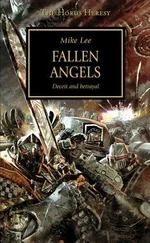“I am entirely at your disposal, sir.”
“Good then. We’ll be leaving very soon. Shall we say forty-eight hours? I have made all the arrangements, however, if you have to settle any personal affairs, please do so. I’m afraid I can’t be more specific as to the nature of the assignment, or the duration at the moment. It will all be apparent to you in good time.”
“I shall look forward to it, sir. And thank you for your gracious consideration.”
“Well enough. You’ll be given information on where to meet me. I shall provide for all your needs in regards to clothing. The secretary will ask you for sizing, but if there are any personal effects you cannot be without, a small attaché would be suitable. Thank you, Mister Thomas. We shall meet again in a few days time.”
Thomas lowered his head in a polite bow and withdrew. The Duke watched him go, smiling quietly. If you only knew what I’ve just given you, he thought. Compensation indeed! The world we know will not last another week. It’s been a marvelous experiment, a grand play, but now I’m afraid there is trouble in heaven that cannot be resolved. Time for the Angels to make their leap to freedom, and you, my Dear Mister Thomas, have just been given something few men on this earth will have here in days to come—your life.
He slipped his hand into his pocket, fingering the object there where he was fond of keeping it. I shall have to find a more secure way to keep it handy, he thought. A nice chain, simple, yet durable should fill the bill. The cool touch of metal was very reassuring, and he took the object in his pocket out and held it up to the light, smiling at the expert craftsmanship of the key. It looked like a small black iron skeleton key, the outer metal weathered nicely to simulate age, yet he knew the inside was a smoothly machined chamber that housed something very special, something he would now rely on for his very life.
The anomaly he learned of earlier had been very curious. He looked over the data very carefully, and it was certainly suspicious, so much so that he flew to London immediately to see it firsthand. The Duke was a trustee of the British Museum, and had made lavish donations over time. He was fond of the place, and would often spend long hours just wandering the halls and delighting to the exhibits. There he could lose himself for a time, forgetting the mundane modernity of the world outside and dwelling in better times in his mind. Better times.
So it was that he received a most unusual call about one of the especial exhibits—the Eglin Marbles—and he went to see about it directly. Doubting Thomas that he was, he did not believe the first reports made to him. He wanted to see the anomaly himself, and thoughts of the excursion now returned to him.
“Are you certain it has not been altered in recent years?” he asked the curator.
“Absolutely certain, sir. The piece has been here, in this very display case, for years now, completely undisturbed.”
“And was there any record of the damage, any sense of how it happened? No sir—at least not officially. There would have been an insurance claim, of course, and we could locate nothing of the sort. What we do know is that it happened in 1941, during the time the marbles were being transported for protection. As you may know, many were moved into the tube—but not all, sir. This one here was transported to the United States for a time, aboard HMS Rodney , to be precise.”
“HMS Rodney? Isn’t that a battleship?”
“It was, sir. She was built in the interwar years and served ably throughout the conflict. Had a few very choice engagements, she did, sir.”
“Do go on, Chelmsley. I’m assuming this has something to do with this damage.”
“It does indeed, sir. The old girl found herself in more than one good scrap at sea, but there were two battles of particular note. One was in May of 1941, which is when we believe this damage occurred. If you recall, sir, that was when John Tovey was running down the Bismarck . Old Rodney was scheduled for overhaul and was actually supposed to be en-route to the US. She had a contingent of war-weary passengers aboard, a goodly sum in gold bullion from the treasury, and some very significant segments of the Elgin Marbles, this piece in particular. They were all being transported for safekeeping, sir, but the Germans got into it and the Bismarck sortie was most inconvenient. Admiral Tovey had to pull Rodney into the chase, not that she was built for such work. She might make 21 to 23 knots on a good day, but her boilers were rather dodgy at the time. It was a miracle that Dalrymple-Hamilton—that was her captain at the time, sir—was able to steer her right into the thick of things and catch that German ship.”
“You say this ship had it out with Bismarck?”
“That she did, sir, before Admiral John Tovey came up with King George V and settled the matter. A battle at sea can be a rather rousing affair, sir. Rodney was Nelson Class, and she had big 16 inch guns all laid out in three turrets on the foredeck.” Chelmsley extended his arms in a wide circle to illustrate the girth of the guns, smiling.
“The guns were so powerful that they damn near shook Rodney to pieces. Most of the damage she sustained in that battle was self inflicted. That and the rough seas at the time gave her cargo holds a bit of a good hard shake, sir. We think the damage occurred there when one of the crates shifted and burst open. We have it on report, sir. The piece was re-fitted, it seems, and must have been done by someone aboard. Unbelievable as it may sound, sir, they just tamped in a little mortar and put the chipped section back.”
“It was not noticed?”
“It may have been, sir, but we’ve no way of knowing that now. All we know is that no fuss was made about it, and no insurance claim ever filed. But…well there it is, sir.” Chelmsley pointed at the display where the Selene Horse sat in special circumstances for a rare cleaning and inspection prior to the planned relocation to a deep underground vault.
“The damage was noticed again on this very inspection, sir. We might not have even seen it except for all this war news prompting the relocation. ”
The piece was a select sculpture of the famous Elgin Marbles, segments of the Parthenon that had been transported to England by Thomas Bruce, the 7th Earl of Elgin from 1801 to 1812. Some called him a savior for bringing such sublime art to the shores of the Kingdom, others called him a vandal and pillager, the famous poet Byron among them. In any case, the marbles were here, and the Duke had always been very fond of them.
“Curst be the hour when from their isle they roved,” said the Duke, quoting Lord Byron’s poetry. “But at least they’re here, and largely in one piece. God only knows what might have happened to them otherwise.”
“Precisely, sir.”
The Duke looked at the sculpture, still admiring the piece, perhaps the most striking of the entire Elgin collection. It’s eyes still bulged with the veins on its neck and face, the labor of a long night pulling the chariot of Selene, the Goddess of the Moon, through the heavens. It was sublime. Well, brigand or not, the Centaurs now battle the Lapith warriors here in Room 18 of the British Museum. It’s a pity their struggle ends here, once and for all time. They’ve survived centuries of strife and turmoil, but now there may be no vault deep enough for what is coming next.
“And the second engagement?”
“Sir?”
“You say this battleship had two battles of particular note.”
“Ah…Yes, sir. The second was a rather cloudy incident in the Med. She was with HMS Nelson , her sister ship during a big relief operation bound for Malta. Something happened, I’m not exactly sure what, but it sent both battleships and the whole escorting force racing back to Gibraltar, leaving their charge early. It was most unusual, but I’m told the ship encountered something very mysterious in that campaign, and both Rodney and Nelson sustained damage that the Royal Navy was keen to cover up.”
Читать дальше











